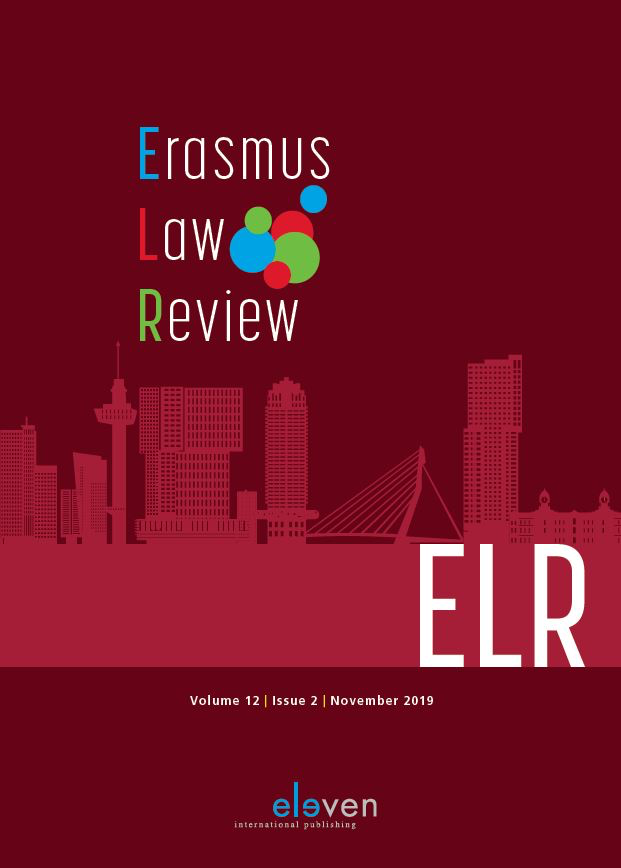|
In today’s global economy, a noticeable trend is that the traditional state-law-centred legal framework is increasingly challenged by self-regulatory private orders. Commercial norms, commercial arbitration and social sanctions at the international level have become important alternatives to national laws, national courts and legal sanctions at the national level. Consisting of transnational commercial norms, both codified and uncodified, and legal norms, both national and international, a plural regime for the governance of transnational commercial transactions has emerged and developed in the past few decades. This article explores the interaction between various kinds of norms in this regime, identifies the effects of this interaction on the governance of transnational commercial transactions and shows the challenges to this interaction at the current stage. The central argument of this article is that the interaction between social and legal norms, namely incorporation and internalisation, and the three effects derived from incorporation and internalisation, namely systematisation, harmonisation and compliance enhancement, are evident at both the national and international levels. In particular, the emergence of codified transnational commercial norms that are positioned in the middle of the continuum between national legal norms and uncodified transnational commercial norms has brought changes to the interaction within the international dimension. Although the development of codified transnational commercial norms faces several challenges at the moment, it can be expected that these norms will play an increasingly important role in the future governance of transnational commercial transactions. |


Erasmus Law Review
Over dit tijdschriftMeld u zich hier aan voor de attendering op dit tijdschrift zodat u direct een mail ontvangt als er een nieuw digitaal nummer is verschenen en u de artikelen online kunt lezen.
| Editorial |
|
| Auteurs | Jing Hiah en Thomas Riesthuis |
| Auteursinformatie |
| Article |
|
| Trefwoorden | Incorporation and internalisation, transnational commercial transactions, transnational commercial norms |
| Auteurs | Bo Yuan |
| SamenvattingAuteursinformatie |
| Article |
|
| Trefwoorden | Criminal reconciliation, Confucianism, decentralisation, centralisation |
| Auteurs | Wei Pei |
| SamenvattingAuteursinformatie |
|
In 2012, China revised its Criminal Procedure Law (2012 CPL). One of the major changes is its official approval of the use of victim-offender reconciliation, or ‘criminal reconciliation’ in certain public prosecution cases. This change, on the one hand, echoes the Confucian doctrine that favours harmonious inter-personal relationships and mediation, while, on the other hand, it deviates from the direction of legal reforms dating from the 1970s through the late 1990s. Questions have emerged concerning not only the cause of this change in legal norms but also the proper position of criminal reconciliation in the current criminal justice system in China. The answers to these questions largely rely on understanding the role of traditional informal dispute resolution as well as its interaction with legal norms. Criminal reconciliation in ancient China functioned as a means to centralise imperial power by decentralizing decentralising its administration. Abolishing or enabling such a mechanism in law is merely a small part of the government’s strategy to react to political or social crises and to maintain social stability. However, its actual effect depends on the vitality of Confucianism, which in turn relies on the economic foundation and corresponding structure of society. |
| Article |
|
| Trefwoorden | Criminalisation of youth hanging around, culture of control, immigration and discrimination |
| Auteurs | Thaddeus Muller |
| SamenvattingAuteursinformatie |
|
The focus in this article is the ‘criminalisation’ of youth hanging around with the emergence of bans on hanging around. A critical social constructivist approach is used in this study, which draws predominantly on qualitative primary data collected between the late 1980s and 2010s. The article compares indigenous with immigrant youth, which coincides with, respectively, youth in rural communities and youth in urban communities. This study shows that there is discrimination of immigrant youth, which is shaped by several intertwining social phenomena, such as the ‘geography of policing’ – more police in urban areas – familiarity, sharing biographical information (in smaller communities), and the character of the interaction, normalising versus stigmatising. In further research on this topic we have to study (the reaction to) the transgressions of immigrant youth, and compare it with (the reaction to) the transgressions of indigenous youth, which is a blind spot in Dutch criminology. |

 Aflevering 4
Aflevering 4